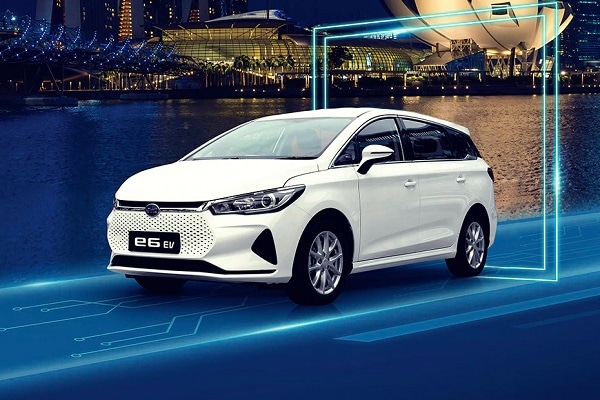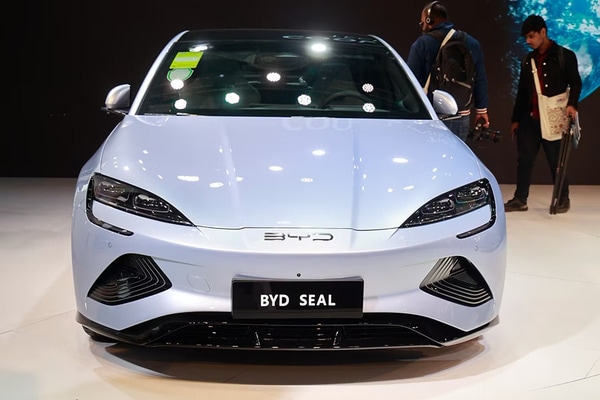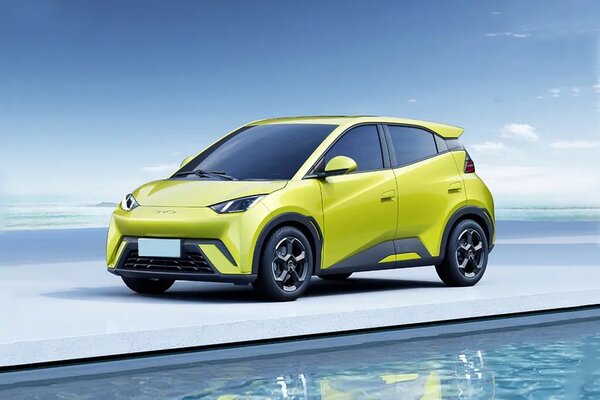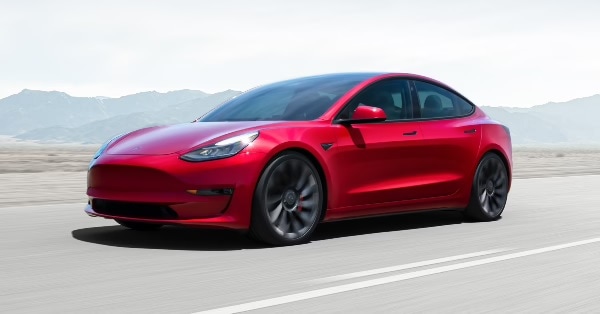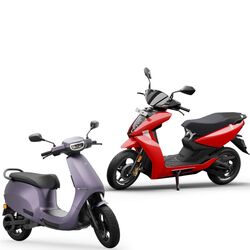BYD, the Chinese EV maker that beat Tesla, plans big for India
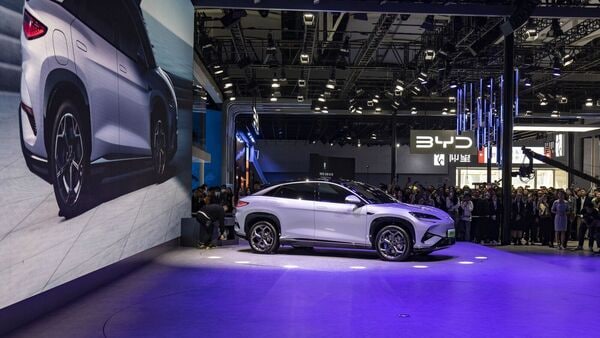

In the realm of electric vehicles (EVs), Tesla has long been synonymous with innovation and dominance. However, a lesser-known contender from China, BYD (Build Your Dreams), has quietly risen to challenge Tesla's reign, emerging as the world's largest EV maker. While Tesla continues to lead in electric battery-only cars, BYD has taken big steps.
In 2023, BYD made headlines by surpassing Tesla in total EV production, with 3.02 million new energy vehicles compared to Tesla's 1.84 million. Notably, BYD's sales figures include a substantial number of battery-only cars and hybrids, underscoring its diversified approach to sustainable mobility. The final quarter of 2023 marked a significant milestone as BYD outsold Tesla in battery-only cars for the first time, showcasing its accelerating momentum in the EV market.
Also check these Vehicles
Also Read : Once laughed at by Elon Musk, China's BYD overtakes Tesla for first time ever
BYD: The beginning
BYD's journey began modestly in 1995 as a battery manufacturer before venturing into the automobile industry in 2003. Leveraging its expertise in battery technology, the company swiftly transitioned into electric and plug-in hybrid vehicles, setting the stage for its meteoric rise. Led by Chairman Wang Chuanfu, BYD has attracted strategic investments, including a stake from Warren Buffett's Berkshire Hathaway, further fueling its expansion and innovation initiatives.
The company's innovation extends beyond traditional automotive boundaries, with forays into cell phone assembly, solar cell manufacturing, and other sustainable technologies. BYD's success story is further amplified by its global expansion efforts, penetrating markets in Europe, Southeast Asia, Oceania, South America, and notably, India.
Meanwhile BYD Auto, which is the automotive subsidiary of BYD Company, was founded in January 2003, following BYD's acquisition of Xi'an Qinchuan Automobile. The first car designed by BYD, the BYD F3, entered production in 2005. BYD started producing its first plug-in hybrid electric vehicle, the BYD F3DM in 2008, followed by its first production battery electric vehicle, the BYD e6 in 2009.
Also Read : BYD Dolphin EV trademarked in India. Check details
BYD ended production of purely internal combustion engined cars in March 2022 to focus on new energy vehicles. The company sells its vehicles under the main BYD brand, and high-end vehicles under its Denza, Yangwang and Fangchengbao brands. Since 2021, the company is expanding sales of passenger cars into overseas markets in Europe, Southeast Asia, Oceania and South America.
Interestingly, BYD experienced a substantial surge in vehicle sales from 2020 to 2023. The company sold 30,24,417 vehicles globally in 2023, a seven-fold increase compared to the 2020 figure of 4,27,302 vehicles. The increase was partly due to the increasing popularity of new energy vehicles in China, which accounted for 27.5 per cent of vehicle sales in China in 2022, increasing from 5.8 per cent in 2020.
Building dreams on Indian shores
The Indian automotive market has emerged as a focal point for global automakers seeking growth opportunities. Among these contenders, BYD wants to be a strong contender in this space.
Registered in Chennai in 2007, BYD laid the groundwork for its Indian operations, including the establishment of an electronics manufacturing plant. However, it wasn't until early 2013 that BYD India shifted gears to explore India's burgeoning electric vehicle (EV) market. A significant milestone was achieved on August 20, 2013, when the first pure electric bus, the BYD K9, arrived at the Port of Chennai, marking a pioneering moment in India's automotive history.
The successful 88-day trial operation of the K9 on the 335E bus line in Bangalore from February 27 to May 31, 2014, paved the way for further trials in major cities like New Delhi, Rajkot, and Hyderabad.
Over the years, BYD India diversified its product portfolio, expanding into electric passenger vehicles, e-buses, e-trucks, and e-forklifts. This diversification reinforced BYD's position as a frontrunner in India's EV industry.
In 2021, BYD ventured into the passenger vehicle (PV) segment with the launch of the e6. Originally targeted at the business-to-business (B2B) market, the e6 gained traction among private customers. Building on this success, BYD introduced the Atto 3 in 2022, signaling its official entry into the Indian PV space and unveiling a revamped logo for its PV business.
Also watch: BYD Atto 3: First Drive Review
Ketsu Zhang, Executive Director of BYD India Private Limited, emphasised India's strategic significance as a hub for serving the South Asian market. Zhang expressed optimism about bringing innovative practices to India and fostering enduring partnerships for the future.
A key driver of BYD's popularity in India is its cutting-edge technology, particularly the Blade Battery. Launched in 2020, the Blade Battery sets new standards in safety and efficiency. Notably, it passed the rigorous nail penetration test and demonstrated exceptional resilience in an extreme strength test, underscoring its superior safety features. Moreover, the Blade Battery's design optimises space utilisation, leading to substantial improvements in energy efficiency and range.
Roadblocks and way ahead
While BYD's success may seem like a fairy tale, its Indian operations have encountered their fair share of challenges. Delays in product launches and hurdles in obtaining homologation certificates for its highly anticipated SUV, the Atto 3, have posed significant obstacles. Consequently, the localized version of the SUV and the imported Seal high-performance electric sedan, slated for launch this year, have been impacted. The Seal EV, initially scheduled for arrival in Q4 of 2023, faced setbacks.
In a setback reported by Reuters, the Directorate of Revenue Intelligence fined BYD a substantial $9 million for tax underpayment in 2023. This incident not only disrupted the company's expansion plans but also led to BYD informing its India joint-venture partner about shelving a proposed $1-billion investment in building electric cars in the country.
Also Read : BYD plans to scrap $1 billion EV investment plan in India. Details here
BYD failed to meet the necessary conditions for lower tax rates, resulting in liabilities ranging from 70 per cent to 100 per cent based on the car's value. While the penalty has been settled, BYD aims to regain momentum in 2024, targeting sales figures similar to those planned for 2023.
Despite these setbacks, BYD India remains determined to forge ahead in the subcontinent. Reports suggest that BYD dealers have begun accepting unofficial bookings for the Seal EV, which debuted at the Auto Expo 2023. Positioned as BYD's third new offering in India's passenger vehicle segment, the Seal EV boasts two battery options: a 61.4 kWh unit offering up to 500 km CLTC range and an 82.5 kWh unit providing up to 700 km range.
Also Read : Auto Expo 2023: BYD Seal electric sedan makes India debut, deliveries in Diwali
Both batteries feature blade technology, enabling rapid charging capabilities. Additionally, the Seal offers two powertrain options: a single-motor and dual-motor configuration. While the single-motor can be paired with both battery sizes, the dual-motor setup is exclusive to the larger battery variant.
With the introduction of the Seal sedan, BYD aims to challenge established players like the Kia EV6 and the Hyundai Ioniq 5 in the fiercely competitive Indian market, signaling its unwavering commitment to innovation and electrification. Furthermore, BYD India has also trademarked Dolphin , hinting at possible launch.







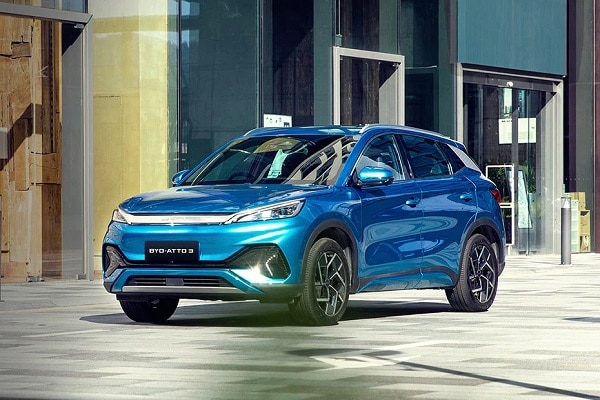
 60.48 kWh
60.48 kWh 521 km
521 km